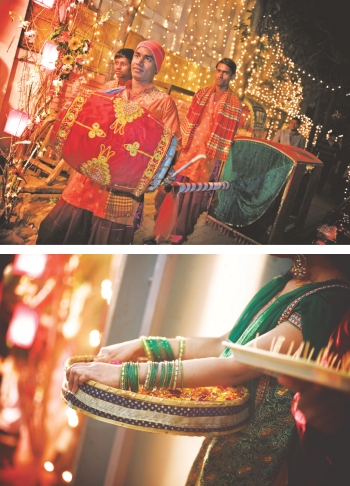| Home - Back Issues - The Team - Contact Us |
 |
| Volume 10 |Issue 45 | December 01, 2011 | |
|
|
Trends
The Toll Booth to Wedded Bliss Anika Hossain Winter in Bangladesh is the most popular season of the year. The slightly cooler (more bearable) temperatures, the delicious winter veggies, mouth watering pithas, winter holidays for school children, a rare opportunity to show off those lovely Kashmiri shawls and pashminas stuffed at the back of one's closet and most importantly- weddings, being the main attractions. Winter weddings are so popular, this special time of the year has been re-christened “the wedding season.” Over the decades however, the weddings themselves have undergone several makeovers. Gone are the days when the ceremonies involved a maximum of fifty to one hundred of one's closest friends and relatives- an intimate affair that could be arranged in one's backyard. “My wedding took place in my aunt's front garden,” says R Hossain in her fifties, who comes from a well to do family, “I wore my mother-in-law's old wedding sari and one set of gold jewellery and did my hair and make-up on my own. Our cook made dinner for our family and friends, I think we served plain pulao and beef curry. This was back in the seventies.”
Such a wedding is now practically unheard of. As the economy grew, incomes increased and so did people's social networks. As years went by, the guest lists for each wedding grew longer and longer. “It is now unthinkable to have a wedding without inviting every single acquaintance you have and sometimes even their friends and families!” says Imtiaz Ahmed, who recently went through an elaborate wedding affair. Along with the size of the guest list, there came changes in many other aspects of these affairs. Increasing exposure to the media introduced new ideas of how weddings are conducted in other parts of the world. Bollywood weddings especially, gave most Bangladeshis a skewed perception of what Indian weddings looked like, and many decided to follow suit. Before we knew it, weddings without large banquet halls, decorated with elaborate floral arrangements and expensive lighting, fine dining, professional entertainment, professional photographers and videographers and at least a week's worth of celebratory events became unthinkable. “A wedding isn't what you think it should be anymore, it is what the society expects it to be,” says Sharmin Jabeen Ahmed, who waited three years to save up for her nuptials before she tied the knot. “My husband and I had to pay for the entire wedding ourselves and let me tell you, it did not come cheap. The engagement alone cost us about three and half lakhs, and this is not including the jewellery set my mother left me which is worth about 3 lakhs.” Ahmed and her husband spent about Tk 1000,000 each on the holud and the wedding ceremonies. “We had to pay about Tk 25000 for the All Community Centre in Gulshan where we had our holud, and Tk 60,000 for Falcon Hall for the wedding, and this is after a discount. We had 350 guests for the holud and about 700 for the wedding and the food was about Tk 500 per person. The photographer charged Tk 20,000 for each event because he was my cousin's friend, but his usual rate is Tk 40,000. I think the gifts we had to buy for our friends and family cost a large chunk of the total expenditure not to mention the beauty salon costs, which went upto Tk 20,000. I had to buy clothes for many of my family members from both my dad's and mom's side and also for my close friends and for some people a simple cotton sari or Panjabi won't do, they expect better things nowadays.” Zeba Hasan, who comes from a lower middle class background, has also spent over a lakh on her wedding, which took place last year. “We had the holud in the garage in our apartment complex, and the wedding in a small community centre in old town, which incidentally caught fire on the night of our wedding because of an electrical malfunction. We had about a hundred and fifty guests but the food, gifts and jewellery were quite expensive.”
Another newly wed, and rather disgruntled Shahreen Islam says, “I spent Tk 20,000 on dalas (wedding gifts for the bride, groom and family, decorated in elaborate baskets) alone, and I didn't have more than maybe 6 dalas! And there are too many options for all the things you can buy, starting from satin and tissue covered dalas to plastic covered ones and so many choices for decorations, it boggles the mind. Invitations were also quite expensive. We had about 300 guests for the holud and were charged over Tk 25000 for the cars. The wedding cards were Tk 40 per piece and we had 2000 guests so it came to about Tk 80,000.” A wedding without dalas, no matter what socio economic status you hold, just doesn't seem complete. Stores selling materials for this purpose alone, now have a booming business. “Winter is the busiest time of the year for me,” says Sayeedul Kader, who has a small shop on elephant road next to a long stretch of what seems to be exclusively dalas and decoration material shops. Kader sits amidst glittering fabric/paper roses and daisies of all colours (Tk 20 to Tk 60 each) bunches of gold and silver leaves and berries (Tk 150 per cluster), colourful balls made of cane (Tk 15 each), beads, pearls and sequins, spray paint and poster colours (Tk 200 a set), ribbons and kathan borders bearing a myriad of designs and patterns, wooden blocks carved with various designs made for block printing (Tk 120 each), colourful paper and of course dalas of all shapes and sizes and price ranges. “Nowadays this is one of the most profitable businesses,” says Kader, “Dala making has become a fun activity for family and friends and they make an event out of it, there is no way I can make a loss.” According to Esha Noor, who is a seasoned wedding shopper having helped out with most of her friends' weddings, the best places to purchase dalas and decoration materials are Elephan Road, New Market, Chadni Chawk and Gawsia Market. “These places have the widest variety of things at bargain prices,” says Noor, “There are high end places like Décor in Gulshan, Ferns and Petals and Ikebana, Gulshan Market and Aarong, but their prices are much higher. In my opinion, if you are buying these things for one-time use only, why not buy affordable things that look nice as long as they last?”
Sari shops also run a profitable business during the wedding season. “Our sales go up during Eid and winter,” says Al Amin, a store manager at a well-known sari shop on Bailey Road. “People buy saris in bulk for each wedding, starting from expensive ones for the murubbis (elderly members of the family, usually mothers, grandmothers, aunts etc) which range from Tk 10,000 to Tk 15,000 each, to cheap cotton ones for the help which cost Tk 400 to Tk 500 each. Many order identical saris for the friends and relatives who will be dancing at the holuds and that costs extra.” Apart from emptying one's bank account, weddings also come with innumerable stresses and obstacles, which need to be overcome, and this requires patience and resourcefulness. “The main problem we faced when we decided to get married was that there were no venues available on the dates we chose,” says Nusha Khan (not her real name), “We had to wait a few extra months to get married. On top of that, some venues offer a catering service, and if you bring an outside caterer, they charge an extra amount, mostly around Tk 15,000. Another big problem was that all the stores close at 8pm and my office hours end at 7:30pm, as does most of my family's. I always had to rush to the stores and grab what I could, often buying more expensive things because I had to shop at places close to work which is in Gulshan!”
Many folks are happy to hand over the many tiresome responsibilities over to experienced, capable hands. “I meet with my clients before every wedding to get an idea of what they want,” says Reza, “I come from a middle class background so I know the financial limitations of such families and can work with them to arrange something that is affordable. For example, for videography, we have a range of prices starting from Tk 3000 and goes up to about one lakh, depending on what the client can afford. For photography, we start at Tk 8000 and it can go up to Tk 10,000 or more. For decorating, we start at Tk 15000 per event, which I think is quite reasonable considering the price of things these days. Some decorations can cost up to one lakh.” Prito noticed that people like to spend more on entertainment these days, like hiring a live band, dancers, etc. Those who can afford it prefer imported flowers for decorations to those available here. “Some folks now want a thematic wedding,” says Prito “We are currently working on a wedding where the theme will be 'Under the Sea,' which will be held at the Lakeshore Hotel. We plan to have an underwater feel to the entire hall with bluish lighting and a shell where the couple will sit,” he describes, “We also plan to make the floor resemble a sea bed, add water fountains, have digital posters etc. The budget for this wedding event is 10 lakhs but it might go over that.” For an upper class wedding, the total expenditure can go up to one crore takas, according to Reza. A stage alone can cost one lakh if one wants it to be that lavish. If you want to import flowers, you can easily spend up to 10 lakhs on that alone.
“Nowadays, the price of booking a wedding venue has gone up considerably,” says Reza. “Small party centres now charge from Tk 25,000 to Tk 50,000. Posh places like Sonargaon, Radisson, The Army Golf Club and Bangabandhu International Conference Centre, will cost from two and a half to three lakhs. You also have to book most places almost a year in advance. For example, golf garden won't be available till 2013!” The price of catering is also quite high in our country. It ranges from say Tk 200 to about Tk 800 per head. Food is the most important part of a Bangladeshi wedding, it can make or break an event, says Reza. For entertainment, the standard charge ranges from Tk 10 to 15,000 for a DJ or a live band. "We get clients from the middle and upper class mostly, and when we do get lower middleclass clients, they usually just want to get the photography or video done by us. They usually book small community centres that have their standard décor and lighting.” What is interesting is that these places charge rent for the tables and chairs separately, usually about Tk 40 per chair. They are also making it mandatory for people to hire their in house decorators when they rent the halls for which they charge double of what an independent decorator would. The cheapest halls are the government owned community centres that charge about Tk 20,000 to Tk 25,000.” “If I had an option, I would spend all that money on buying my wife a nice ring or taking her on a lavish honeymoon,” says Sarwar Khan, “but you do what you have to I guess.” Aside from the near-bankruptcy and the near-nervous breakdowns, weddings do contribute largely to our economy. The flower business, handicrafts, the community centres, the boutiques, caterers, decorators, photo/videographers, musicians, beauty salons, transport business and even the airlines that fly guests to the city/country make good money from these events. On an individual level, people hired to run errands, serve and clean up, also make a good amount every year. Of course, at the end of the day, the joy it brings to see beautiful arrangements and happy faces all around makes it all worth all the trouble. So enjoy this year's wedding season, which has begun with a promise of new and exciting things to come.
Copyright
(R) thedailystar.net 2011 |
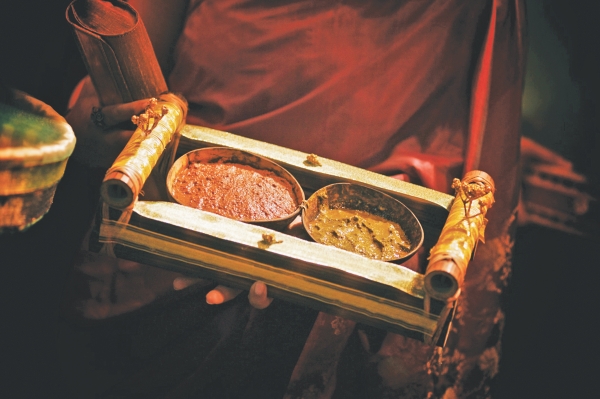
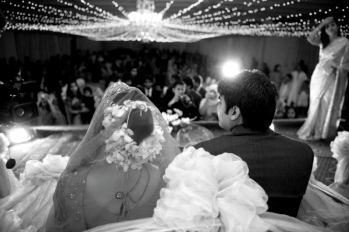
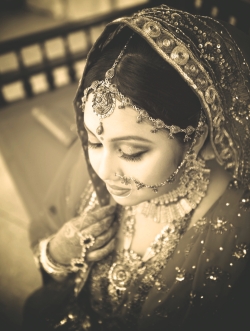
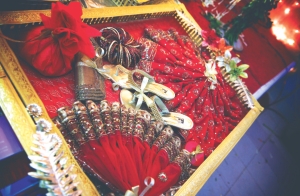
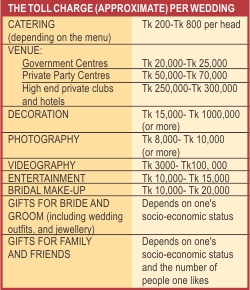 As wedding productions get more extravagant, some people have turned these events into a full time profession. “In Bangladesh, weddings in themselves have become an industry,” says Prito Reza, a wedding planner who runs a company called Wedding Diary, “My team undertakes everything that needs to be done for a wedding, apart from matchmaking. We do the decorations, lighting, sound, entertainment such as bands or dancers etc, catering, print the cards, decorate the dalas, help book the venues, in fact, we even make appointments for the bride at the beauty salon for her make-up for the big day (at a discount) and decorate the fish sent to the bride's on the morning of the holud.”
As wedding productions get more extravagant, some people have turned these events into a full time profession. “In Bangladesh, weddings in themselves have become an industry,” says Prito Reza, a wedding planner who runs a company called Wedding Diary, “My team undertakes everything that needs to be done for a wedding, apart from matchmaking. We do the decorations, lighting, sound, entertainment such as bands or dancers etc, catering, print the cards, decorate the dalas, help book the venues, in fact, we even make appointments for the bride at the beauty salon for her make-up for the big day (at a discount) and decorate the fish sent to the bride's on the morning of the holud.”